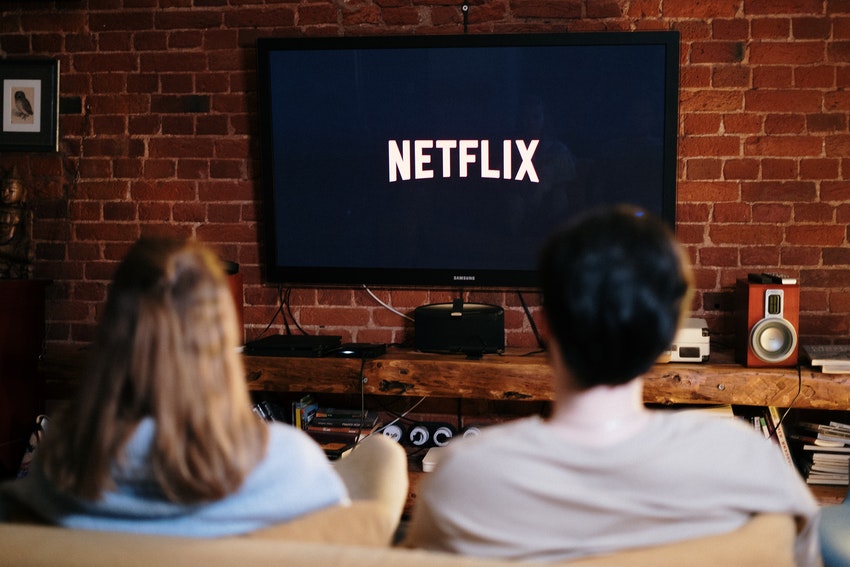Your basket is currently empty!
Well established business find it challenging to justify the necessity of social media, especially when things are working fine. If you’re running ads and you’re selling products, why invest heavily in social media? For some of you, your concern may be, how do we quantify the value of social media? What’s the point of putting out all that content? What will we get in return? And how can we easily measure that value? I think when brands start thinking like Netflix; then they can begin to realise the true value. Netflix understands the power of attention. For starters, social media is so much more than putting out content every day so that consumers know your business exists. Social media users don’t care about any brand in particular. They only care about getting their daily content fix, wherever that may come from. Furthermore, social media is so much more than marketing. I’m beginning to dislike the term social media marketing because it’s wrong – completely wrong. Social media can be used as a marketing vehicle but not in the traditional sense. It cannot be used as an alternative to advertising. Advertising to inform consumers how great your product is, will not work in the long run on social media. Consumers are not heavily engaged with content that pushes products. No longer do we need to sit through two minutes of overproduced ads trying to sell us stuff we don’t want or need. Ads during the cliffhanger of your film are irritating – you know that. Once a company understands what audiences are finding appealing on social media, then they can see that it is not about marketing at all. Instead, your company needs to see social media as a way of going where the customers are, empowering the customer, enhancing the image of the company and building loyalty. And that’s where the value is – immeasurable loyalty. There are other ways to measure the value of social media, but the power of loyalty is one value businesses cannot take for granted. The reason loyalty is critical is consumers have changed the way they search for and buy goods and services. By and large, unless they are using eCommerce sites like Amazon and eBay, consumers are seeking out new brands less and less. They are satisfied with the ones they are already loyal to, and so there’s no need to do any more searching. They’d rather laugh at babies tasting ice scream for the first time then listen to operatic calls to use a particular comparison website. So they are switching off ads because they already know and are committed to certain brands. Social media is much more entertaining. Brands need to admit that consumers don’t like ads anymore and are sticking to what they already know. The sooner they realise this; brands can find ways to increase commitment. Ads don’t do that. Ads inform. They’re about businesses crafting messages on they think will influence consumers. On social media, the consumer is in control, and they are choosing what will take their attention. If a content creator delivers consistently, consumers stay committed. People are always on their phones. They are continually gazing down consuming content. Some may say the mobile phone is an unnecessary evil, but people are finding them entertaining. And the amount of time we are on our phones has left us with little time for anything else. What with streaming platforms such as Netflix, online zoom meetings, Instagram LIVES, YouTube, and catching up with friends on WhatsApp, we have less time. We’re going shopping at the HIgh Street less and using our devices more to buy. However, we do we want to be sold to because we’ve been oversold. We’ve endured the days of having to sit through the commercial ads for years. Now we have Twitter, and we can connect with global online communities. No more ads, thank you very much. We’ve waited long for these days. So since we do not need to endure ads, we rely on a friend’s Facebook recommendation. Or even better, we turn to the brand we have been engaging with on Instagram because we trust our own instinct. Plus, we’re loyal. That emotional connection we’ve built with the brand is hard to break. Buying from a brand we have come to know and love through entertaining video skits, live conversations, and YouTube DIY’s makes far better sense. Why should we spending time googling for products and trying to decipher whether the reviews are real, accurate or both? The days of deciding to purchase based on a Google Ad are becoming fewer. We don’t need them anymore. Social media allows us to get to know a brand on a deeper level. But brands have only just hit the tip of the iceberg where this type of buying behaviour is concerned. Most brands still have a long way to go in creating the type of content that has consumer’s attention and influences sales. This is because brands aren’t seeing social media from the consumer’s point of view. They still see it as a way to push products, but it’s not this at all. Unless brands spend time using social media and understanding how consumers use it, they’ll keep limiting social media’s power. You only have to take a look around you on the morning commute to see how much attention social media takes. And if you use it yourself, you know how engaged you are with other people’s content. More than likely, no one’s looking for products, but most are looking for good content to pass the time. Now flip the switch. You are the business, and you are creating the type of content that consumers want to see all of the time. You are creating engaging content that helps that daily commute become much more enjoyable. Think of what that means to your business. And believe it or not, few brands are dedicating enough resources towards this. Despite having the means to do so, not enough brands create high volumes of engaging content, consistently that holds attention. The volume of content is being created by the underdogs – those with little to no budget and resources or even products to sell. However, these underdogs know they don’t need to have a huge budget because audiences are not looking for polished content. Audiences want to chill and have fun. Instead, creators are focused on content that is original and binge-worthy because they understand it gets high levels of attention. Attention is what counts and presents big opportunities. Amassing high levels of attention is the reason we’re seeing people hit the big time seemingly overnight from nowhere. It wasn’t overnight. These creators were in their bedroom, creating content consumers wanted. Whereas, the more prominent, and established brands see social media as mere marketing – a vehicle for pushing products. They talk to us all day long about what we can buy from them and where. For now, they are getting away with it because they have an established brand name and so we don’t mind. However I would be surprised if you check the numbers, they’ll speak for themselves. In real times they won’t be as great as the content creators who are going hard to entertain, educate and inspire their audiences. For now, consumers place less pressure on the bigger brands to create content that holds their attention. In reality, they don’t need to. They are getting the binge-worthy content from the underdogs. So whilst the big brands are focusing on selling, the underdogs are focused on attention- a far more valuable commodity in the long run. Once you have strong attention, you have stronger loyalty, and with loyalty, you can increase and sustain market share. There will be many a big brand that won’t see the underdogs coming. All is not lost for the brand that understands social media is a way of communicating, of storytelling, of connecting and being of value. And this is why social media experts like myself will keep saying businesses need to consider themselves as media companies who create the content that keeps consumers binging on – like Netflix. Start thinking like Netflix and the possibilities become innumerable. With bigger budgets and larger resources, the tables can be turned quickly. Brands can go from trying to sell products to becoming an important part of audiences daily content consumption needs. If you create a department in your organisation whose sole purpose is to create content that educates, entertains and inspires consumers, you can create a very similar attitude to your content as Netflix has. Netflix has adopted a model which causes consumers to binge on content their platform – a powerful position to be. If your brand can achieve that, your brand name will be on consumers lips. And that’s where social media brings value to your brand. Being present and delivering value consistently will return value to your business. Go beyond seeing social media as a place where you sell products and start treating it as a place where you create content to gain and hold attention. It is the ability to have consumers tuned in to your content which brings your company long -term value.You can't put a number on loyalty.

Businesses are already seeing advertising becoming obsolete if not wholly irrelevant. Consumers are gladly switching off their TV’s in favour of spending hours on TikTok watching low-production 30-second reels starring ordinary people.What is the consumer's view on this?

Thinking Like Netflix

Book a Workshop


